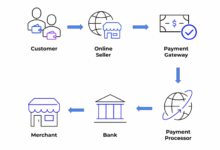Best AI For Business: Revolutionizing Industries With Artificial Intelligence
Starting off with the best AI for business, this paragraph aims to provide an intriguing overview of how artificial intelligence is reshaping traditional business practices and revolutionizing various industries.
As AI continues to gain momentum, businesses are increasingly leveraging its potential to enhance decision-making processes, optimize workflows, and improve customer experiences. With the right AI technologies in place, companies can stay ahead of the curve and drive innovation in today’s competitive landscape.
Introduction to AI for Business
Artificial Intelligence (AI) has become a game-changer in the business world, revolutionizing traditional practices and opening up new opportunities for growth and innovation. Businesses across various industries are leveraging AI technologies to streamline operations, enhance customer experiences, and drive strategic decision-making.
Significance of AI in Business
AI is transforming traditional business practices by automating repetitive tasks, analyzing vast amounts of data to uncover insights, and enabling predictive analytics for better decision-making. Industries such as healthcare, finance, retail, and manufacturing are benefiting significantly from AI implementation.
ROI of Integrating AI
- Improved operational efficiency and productivity
- Enhanced customer experiences through personalized services
- Cost savings from automation and predictive maintenance
- Increased revenue through targeted marketing and sales strategies
Key AI Technologies in Business
- Natural Language Processing (NLP) for text analysis and sentiment recognition
- Machine Learning for data analysis, pattern recognition, and predictive modeling
- Computer Vision for image and video analysis
- Robotic Process Automation (RPA) for automating repetitive tasks
Ethical Considerations in AI Implementation
As businesses integrate AI solutions, they need to address ethical considerations related to data privacy, bias in algorithms, transparency in decision-making processes, and accountability for AI-driven outcomes.
Cost Implications of AI Development
Businesses can choose to develop AI in-house, which may require significant investment in talent and infrastructure, or outsource AI solutions to specialized providers, balancing the cost against the expertise and resources needed.
Challenges in Integrating AI
- Data quality and availability for training AI models
- Resistance to change and upskilling existing workforce
- Regulatory compliance and data security concerns
- Integrating AI with existing systems and processes
Types of AI Technologies for Business
Artificial Intelligence (AI) technologies have revolutionized the way businesses operate, offering various tools and capabilities to enhance efficiency and productivity. Machine learning, natural language processing, and robotic process automation are key AI technologies that are widely used across different industries for various business functions.
Machine Learning
Machine learning involves the use of algorithms and statistical models to enable machines to learn from data and make decisions without being explicitly programmed. In business, machine learning can be utilized for predictive analytics, customer segmentation, fraud detection, and recommendation systems. For example, e-commerce companies use machine learning algorithms to recommend products to customers based on their browsing history and purchase behavior.
Natural Language Processing
Natural Language Processing (NLP) focuses on the interaction between computers and human language. This AI technology enables machines to understand, interpret, and generate human language, making it valuable for tasks such as sentiment analysis, chatbots, and language translation. In business, NLP can be used for customer service chatbots to provide instant responses to customer inquiries and feedback.
Robotic Process Automation
Robotic Process Automation (RPA) involves automating repetitive and rule-based tasks by using software robots or “bots” to streamline business processes. RPA can be applied in various business functions such as data entry, invoice processing, and report generation. For instance, finance departments can use RPA to automate invoice processing, reducing manual errors and improving efficiency.
Advantages and Limitations
- Machine Learning:
- Advantages: Can analyze large datasets quickly, make accurate predictions, and improve decision-making processes.
- Limitations: Requires high-quality data for training, complex algorithms, and continuous monitoring to avoid bias.
- Natural Language Processing:
- Advantages: Enhances customer interactions, automates text analysis, and enables multilingual support.
- Limitations: Challenges with understanding context, nuances, and slang in language processing.
- Robotic Process Automation:
- Advantages: Increases operational efficiency, reduces human errors, and saves time on repetitive tasks.
- Limitations: Limited cognitive capabilities, inability to handle unstructured data, and dependency on structured processes.
Challenges and Strategies
Implementing AI technologies in business can pose challenges such as data privacy concerns, integration with existing systems, and employee resistance to automation. Companies can overcome these challenges by investing in employee training, enhancing data security measures, and creating a clear roadmap for AI implementation.
Emerging Trends in AI Technologies
AI technologies continue to evolve, with emerging trends such as explainable AI, autonomous systems, and AI ethics gaining traction in the business world. These trends are shaping the future of AI applications, offering new opportunities for businesses to improve decision-making, customer experiences, and operational efficiency.
Benefits of AI for Businesses
AI offers a wide range of advantages for businesses, revolutionizing operations and decision-making processes. Let’s delve into how AI can benefit organizations in various aspects.
Enhanced Decision-Making Processes
AI algorithms can analyze large sets of data at a rapid pace, providing valuable insights to support decision-making. By processing complex data patterns, AI helps businesses make informed decisions based on accurate information.
Improved Customer Experience and Engagement
AI-powered tools, such as chatbots and personalized recommendations, enhance customer interactions by providing instant responses and tailored experiences. This leads to increased customer satisfaction and loyalty, ultimately driving business growth.
Optimized Internal Workflows and Efficiency
AI automates repetitive tasks, streamlines processes, and identifies areas for improvement within internal workflows. By reducing manual labor and human error, AI boosts efficiency and productivity, allowing employees to focus on more strategic tasks.
Challenges of Implementing AI in Business
Implementing AI in business comes with its own set of challenges that organizations need to address in order to fully leverage the benefits of this technology. From data privacy concerns to ethical considerations, navigating the complexities of AI integration requires careful planning and strategy.
Data Privacy and Security Concerns
Incorporating AI into business operations often involves handling large volumes of sensitive data. This raises concerns about data privacy and security, especially in light of increasing regulations such as GDPR. Ensuring compliance with data protection laws and safeguarding sensitive information from cyber threats are crucial aspects that businesses must prioritize when implementing AI solutions.
AI Bias and Ethical Considerations
One of the key challenges in AI implementation is the presence of bias in algorithms, which can lead to discriminatory outcomes. Businesses need to be mindful of biases that may exist in their data sets and algorithms to prevent unfair treatment or decisions. Additionally, ethical considerations surrounding AI, such as transparency, accountability, and fairness, must be carefully addressed to build trust with customers and stakeholders.
Integration into Existing Workflows
Integrating AI into existing workflows can be a complex process that requires alignment across different departments and teams. Resistance to change, lack of technical expertise, and organizational silos are common barriers that businesses face when adopting AI technologies. Developing a clear roadmap, providing adequate training, and fostering a culture of innovation are essential strategies for overcoming these challenges and ensuring successful integration of AI into business processes.
AI Trends in Business
Artificial Intelligence (AI) continues to revolutionize various industries by offering innovative solutions to complex challenges. Let’s explore the current trends in AI adoption across different sectors and how businesses are leveraging AI technologies for growth and efficiency.
Emergence of AI-powered Analytics and Predictive Modeling
AI-powered analytics and predictive modeling have become indispensable tools for businesses looking to make data-driven decisions. By utilizing AI algorithms, companies can extract valuable insights from vast amounts of data, enabling them to anticipate market trends, optimize operations, and enhance overall performance.
Growing Popularity of AI Chatbots and Virtual Assistants
AI chatbots and virtual assistants are transforming customer service by providing instant and personalized support round the clock. These AI-powered tools can handle customer inquiries, process orders, and even offer product recommendations, improving customer satisfaction and loyalty.
Innovative AI Applications Reshaping the Business Landscape
Businesses are embracing innovative AI applications such as robotic process automation (RPA), natural language processing (NLP), and computer vision to streamline workflows, automate repetitive tasks, and enhance productivity. These AI technologies are reshaping the business landscape by driving innovation and fostering competitiveness.
Key Benefits of AI for Businesses
The key benefits of AI for businesses include increased efficiency, cost reduction, and improved decision-making processes. AI enables companies to automate routine tasks, optimize resource allocation, and gain valuable insights from data, leading to enhanced operational efficiency and profitability.
Importance of Data Quality and Quantity in Successful AI Implementation
High-quality data plays a crucial role in the successful implementation of AI within businesses. Accurate and relevant data sets are essential for training AI models and ensuring optimal performance. Businesses must focus on collecting, storing, and managing data effectively to harness the full potential of AI technologies.
Role of AI in Personalizing Customer Experiences and Improving Customer Retention
AI plays a vital role in personalizing customer experiences by analyzing customer preferences, behaviors, and feedback. By leveraging AI algorithms, businesses can tailor products and services to individual needs, increasing customer satisfaction and retention rates.
Use of AI in Small Businesses vs. Large Enterprises
Small businesses and large enterprises face unique challenges and opportunities when implementing AI technologies. While large enterprises may have greater resources and expertise to adopt AI on a larger scale, small businesses can leverage AI tools to enhance efficiency, improve customer service, and drive growth in a cost-effective manner.
Case Studies of Successful AI Implementations
AI technologies have revolutionized the way businesses operate, leading to increased efficiency, productivity, and innovation. Let’s explore some case studies of businesses that have successfully implemented AI solutions to achieve remarkable outcomes.
Healthcare Industry
In the healthcare sector, IBM Watson Health stands out as a prime example of successful AI integration. By leveraging AI capabilities for data analysis and interpretation, IBM Watson Health has enabled healthcare providers to make more informed decisions, leading to improved patient outcomes and personalized treatment plans. The implementation of AI in healthcare has not only enhanced the quality of care but also optimized operational processes, resulting in cost savings for healthcare organizations.
E-commerce Sector
Amazon, a global e-commerce giant, has made significant strides in harnessing AI to enhance customer experience and streamline operations. Through its recommendation engine powered by AI algorithms, Amazon provides personalized product recommendations to customers, increasing engagement and driving sales. Additionally, AI-powered predictive analytics help Amazon forecast demand, optimize inventory management, and improve supply chain efficiency. As a result, Amazon has been able to deliver a seamless shopping experience to customers while maximizing operational efficiency.
Financial Services Industry
JP Morgan Chase, a leading financial services firm, has successfully implemented AI technologies to enhance risk management and fraud detection. By utilizing AI algorithms for real-time data analysis, JP Morgan Chase can identify potential risks and anomalies in financial transactions, enabling proactive risk mitigation strategies. The adoption of AI has enabled JP Morgan Chase to strengthen security measures, mitigate fraud risks, and ensure compliance with regulatory requirements, ultimately safeguarding the interests of its customers and stakeholders.
Manufacturing Sector
Siemens, a renowned manufacturing company, has embraced AI-driven technologies to optimize production processes and improve operational efficiency. Through the implementation of AI-powered predictive maintenance solutions, Siemens can anticipate equipment failures, schedule preventive maintenance activities, and minimize downtime. By leveraging AI for predictive analytics and machine learning, Siemens has achieved higher equipment uptime, reduced maintenance costs, and enhanced overall productivity in its manufacturing operations.
AI Tools and Platforms for Business
AI tools and platforms have become essential for businesses looking to leverage artificial intelligence to improve their operations and enhance customer experiences. Let’s explore some popular options available in the market.
Popular AI Tools and Platforms
- IBM Watson: IBM Watson is a leading AI platform that offers a wide range of tools for natural language processing, machine learning, and data analytics. It is known for its advanced capabilities in speech recognition and image analysis.
- Google Cloud AI: Google Cloud AI provides a suite of AI solutions, including machine learning models, APIs for text and image analysis, and tools for data visualization. It is widely used for its scalability and integration with other Google Cloud services.
- Microsoft Azure AI: Microsoft Azure AI offers a comprehensive set of AI tools and services, such as cognitive services, machine learning, and conversational AI. It is popular for its user-friendly interface and integration with Microsoft products.
Comparison of AI Tools and Platforms
| AI Platform | Pricing Structures | Integration Capabilities | Customer Support Options |
|---|---|---|---|
| IBM Watson | Subscription-based pricing | Highly customizable and integratable | 24/7 customer support |
| Google Cloud AI | Pay-as-you-go pricing | Seamless integration with Google Cloud services | Online documentation and community forums |
| Microsoft Azure AI | Usage-based pricing | Easy integration with Microsoft products | Personalized support from Microsoft experts |
Implementation of AI Tools in Business
Implementing an AI tool or platform in a business setting requires careful planning and execution. Here’s a step-by-step guide to help you get started:
- Evaluate your business needs and goals to determine the right AI solution.
- Choose an AI platform that aligns with your requirements and budget.
- Onboard and train employees on how to use the AI tool effectively.
- Monitor the performance and impact of the AI tool on your business operations.
Success Stories of AI Implementation
Company X utilized IBM Watson’s AI capabilities to streamline their customer service operations, resulting in a 30% increase in customer satisfaction rates.
Google Cloud AI helped Company Y analyze large datasets more efficiently, leading to a 20% reduction in data processing time.
Microsoft Azure AI enabled Company Z to develop a personalized chatbot for their website, doubling customer engagement and sales conversion rates.
AI Implementation Strategies for Small Businesses
Implementing AI in small businesses can be a game-changer, but it requires a strategic approach to ensure maximum impact and success. Here are some key strategies for small businesses looking to integrate AI into their operations:
Identifying Areas for AI Integration
- Conduct a thorough assessment of your business processes to identify areas where AI can streamline operations, improve efficiency, or enhance customer experience.
- Focus on tasks that are repetitive, time-consuming, or data-heavy, as these are prime candidates for AI integration.
- Consider areas such as customer service, marketing, inventory management, and data analysis for potential AI implementation.
Selecting AI Solutions
- Research and compare different AI solutions available in the market to find one that aligns with your business goals and budget.
- Consider factors like scalability, ease of integration, user-friendliness, and customer support when selecting an AI solution for your small business.
- Look for AI tools that offer customization options to suit the specific needs of your business.
Measuring ROI of AI Implementation
- Define clear metrics and KPIs to track the impact of AI implementation on your business operations.
- Monitor key performance indicators such as cost savings, productivity gains, revenue growth, and customer satisfaction to measure the ROI of AI integration.
- Regularly analyze data and feedback to assess the effectiveness of AI tools and make adjustments as needed.
Employee Training for AI Utilization
- Provide comprehensive training programs to educate employees on how to use AI tools effectively in their daily tasks.
- Offer hands-on training, workshops, and resources to help employees understand the benefits of AI and how it can improve their work efficiency.
- Encourage a culture of continuous learning and adaptation to foster employee confidence in using AI technologies.
Ensuring Data Security and Privacy
- Implement robust data security protocols to protect sensitive information and ensure compliance with privacy regulations.
- Use encryption, access controls, and regular security audits to safeguard data stored and processed by AI systems.
- Educate employees on best practices for data security and privacy to minimize the risk of data breaches or leaks.
Training and Upskilling for AI Adoption
Training employees to work with AI technologies is crucial for successful implementation in businesses. It helps in building the necessary skills and competencies required to leverage AI effectively. Upskilling the existing workforce is essential to adapt to AI-driven changes and stay competitive in the market. Creating a culture of continuous learning and innovation can foster a positive environment for AI adoption.
Importance of Training and Upskilling
Training employees to work with AI technologies is crucial for successful implementation in businesses. It helps in building the necessary skills and competencies required to leverage AI effectively. Upskilling the existing workforce is essential to adapt to AI-driven changes and stay competitive in the market.
Skills and Competencies Required for AI Implementation
- Understanding of AI concepts and technologies
- Data analysis and interpretation skills
- Programming and coding proficiency
- Problem-solving and critical thinking abilities
- Collaboration and communication skills
Recommendations for Upskilling Workforce
- Offer specialized training programs on AI technologies
- Encourage employees to pursue certifications in AI-related fields
- Provide access to online courses and resources for continuous learning
- Establish mentorship programs for knowledge sharing and skill development
Creating a Culture of Continuous Learning and Innovation
- Promote a growth mindset among employees
- Reward and recognize learning achievements
- Encourage experimentation and risk-taking in AI projects
- Foster a collaborative and inclusive work environment
Implementing AI Ethics and Governance Framework
Establishing an AI ethics framework within organizations is crucial to ensure responsible AI deployment. It helps in defining the boundaries and guidelines for ethical AI practices. A robust AI governance structure plays a key role in overseeing and regulating AI initiatives to mitigate risks and ensure compliance with ethical standards.
Key Components of AI Governance Structure
- Clear policies and guidelines for AI development and deployment
- Designated roles and responsibilities for overseeing AI projects
- Regular audits and evaluations of AI systems for compliance
- Mechanisms for addressing ethical concerns and biases in AI algorithms
Integrating Ethical Considerations into AI Processes
- Conducting ethical impact assessments before deploying AI solutions
- Implementing transparency measures to explain AI decision-making processes
- Ensuring diversity and inclusion in AI development teams
- Providing training on ethical AI practices for employees
Addressing Bias and Transparency in AI Algorithms
- Regularly monitoring and evaluating AI algorithms for bias
- Implementing bias detection and mitigation strategies
- Ensuring transparency in AI models and processes
- Engaging in stakeholder consultations to address ethical concerns
Ethical Considerations in AI Business Applications
As artificial intelligence (AI) continues to revolutionize the business landscape, ethical considerations have become a crucial aspect of its implementation. Addressing ethical dilemmas associated with AI use in business contexts is essential to ensure responsible and transparent practices.
AI Bias and Discrimination
AI bias and discrimination in decision-making processes can have far-reaching consequences, impacting individuals and communities. It is imperative to understand the implications of biased algorithms and work towards mitigating these risks.
- Implementing diverse and inclusive datasets to reduce bias in AI models.
- Regularly auditing AI systems to identify and rectify any discriminatory patterns.
- Ensuring transparency in AI algorithms to increase accountability and trust.
Regulatory Frameworks and Guidelines
Regulatory frameworks and guidelines play a significant role in shaping ethical AI development and deployment. Compliance with these regulations is crucial for businesses to uphold ethical standards and protect user rights.
- Following GDPR guidelines to safeguard user data privacy and security.
- Adhering to ethical AI principles outlined by organizations like IEEE and ACM.
- Collaborating with regulatory bodies to establish industry-wide standards for ethical AI practices.
Examples of Ethical AI Practices
Several companies have exemplified ethical AI practices to maintain transparency and accountability in their operations. By prioritizing ethical considerations, these organizations set a positive precedent for responsible AI usage.
- Google’s AI Principles that guide the development and deployment of AI technologies.
- IBM’s AI Fairness 360 toolkit for detecting and mitigating bias in AI systems.
- Salesforce’s AI Ethics Advisory Panel to ensure ethical AI use across its products and services.
Measuring the Impact of AI on Business Performance
Artificial Intelligence (AI) has the potential to revolutionize business operations, but how can organizations measure the impact of AI on their performance? Evaluating the Return on Investment (ROI) of AI implementations is crucial to understanding the value it brings to the business.
Key Performance Indicators for Measuring AI Impact
- Customer Satisfaction: Measure improvements in customer satisfaction levels as a result of AI-driven customer service solutions.
- Cost Reduction: Track the reduction in operational costs, such as labor expenses, through the implementation of AI automation.
- Revenue Growth: Analyze the impact of AI on revenue generation through personalized marketing strategies and enhanced sales processes.
Methodologies for Tracking AI Effectiveness
- Comparative Analysis: Compare performance metrics before and after AI implementation to quantify improvements accurately.
- Predictive Modeling: Use AI algorithms to predict outcomes and assess the potential impact on business performance.
- Sentiment Analysis: Utilize AI tools to analyze customer feedback and sentiment to gauge the success of AI initiatives.
Analyzing Data from AI Systems
Businesses can leverage data generated by AI systems to enhance decision-making and strategy development. By analyzing trends, patterns, and insights from AI-generated data, organizations can make informed decisions to drive business growth and efficiency.
AI Security and Risk Management
AI security and risk management are crucial aspects of implementing artificial intelligence in business operations. As AI systems become more prevalent, it is essential to address cybersecurity risks and develop strategies to safeguard sensitive data and ensure the integrity of AI-driven processes.
Cybersecurity Risks Associated with AI Adoption
- AI systems can be vulnerable to cyber threats such as data breaches, malware attacks, and adversarial attacks.
- Unauthorized access to AI algorithms or models can lead to data manipulation, privacy breaches, and financial losses.
Mitigating Security Vulnerabilities in AI Systems
- Implementing robust encryption methods to protect data at rest and in transit.
- Conducting regular security audits and updates to identify and address vulnerabilities in AI systems.
Ensuring Data Privacy and Confidentiality
- Establishing access controls and authentication mechanisms to restrict unauthorized access to AI systems and data.
- Complying with data protection regulations and standards to safeguard customer information and maintain trust.
Role of AI in Enhancing Cybersecurity
- Utilizing AI algorithms for real-time threat detection, anomaly detection, and pattern recognition to enhance cybersecurity measures.
- Automating incident response and security operations to mitigate risks and respond to security incidents promptly.
Importance of Regular Security Audits
- Conducting periodic security assessments to identify vulnerabilities, assess risks, and implement necessary security controls.
- Updating security protocols and patches to address emerging threats and vulnerabilities in AI systems.
Impact of AI Breaches on Business Continuity
- AI breaches can disrupt business operations, lead to financial losses, damage reputation, and erode customer trust.
- Implementing incident response plans and business continuity strategies to minimize the impact of AI security incidents.
Protocols for Secure Data Storage and Transmission
- Utilizing secure data storage solutions with encryption, access controls, and data backup mechanisms to protect sensitive information.
- Implementing secure transmission protocols such as VPNs, SSL/TLS for data exchange between AI systems and external networks.
Ethical Considerations in AI Security
- Addressing ethical concerns related to AI bias, transparency, accountability, and fairness in security practices and decision-making processes.
- Ensuring responsible AI usage and adherence to ethical guidelines and standards to uphold privacy and human rights.
Encryption Methods for Protecting Sensitive Data
- Utilizing cryptographic techniques such as AES, RSA, and homomorphic encryption to secure sensitive data in AI algorithms and models.
- Implementing encryption key management practices to protect encryption keys and ensure secure data access and decryption.
Conducting a Comprehensive AI Security Risk Assessment
- Identifying potential security threats, vulnerabilities, and risks associated with AI systems, applications, and data assets.
- Assessing the impact of security incidents on business operations, data integrity, and compliance with regulatory requirements.
Future Outlook for AI in Business
In the rapidly evolving landscape of technology, AI continues to play a pivotal role in shaping the future of business operations. Let’s delve into the potential trends and advancements that are expected to impact AI in business applications.
Integration of AI with Emerging Technologies
AI is expected to further integrate with other emerging technologies such as IoT and blockchain in the business realm. This integration will enable businesses to harness the power of interconnected systems for enhanced decision-making and operational efficiency.
- AI-driven IoT solutions will enable real-time data analysis and predictive maintenance, revolutionizing industries like manufacturing, healthcare, and logistics.
- The combination of AI and blockchain technology will enhance data security, transparency, and trust in business transactions, particularly in sectors like finance and supply chain management.
- Businesses that leverage the synergies of AI with IoT and blockchain will gain a competitive edge by unlocking new opportunities for innovation and value creation.
Impact on Business Models
The proliferation of AI is expected to reshape traditional business models, driving a shift towards more data-driven, customer-centric approaches. Businesses that embrace AI technologies will be able to personalize customer experiences, optimize operations, and drive growth in an increasingly digital economy.
- AI-powered analytics will enable businesses to gain deeper insights into customer behavior, preferences, and trends, leading to more targeted marketing strategies and product offerings.
- Automation of routine tasks through AI will free up human resources to focus on higher-value activities like innovation, strategy development, and customer engagement.
- AI-driven business models will foster agility and adaptability, allowing companies to respond quickly to market changes and stay ahead of the competition.
Preparing for an AI-driven Future
To thrive in a future dominated by AI technologies, businesses need to invest in talent development, infrastructure, and strategic partnerships to capitalize on the full potential of AI. Embracing a culture of continuous learning, innovation, and adaptability will be key to staying competitive in dynamic and AI-driven markets.
- Upskilling employees in AI-related competencies and fostering a culture of data literacy will be essential for businesses to harness the power of AI effectively.
- Collaborating with AI solution providers, research institutions, and industry experts will help businesses stay abreast of the latest AI trends and advancements, enabling them to make informed decisions and drive innovation.
- Investing in scalable AI infrastructure and platforms will empower businesses to deploy AI solutions at scale, streamline operations, and deliver value to customers more efficiently.
Last Point
In conclusion, the adoption of AI in business operations presents a myriad of opportunities and challenges. By understanding the impact, benefits, and ethical considerations of AI implementation, businesses can navigate the evolving landscape and unlock new possibilities for growth and success.




